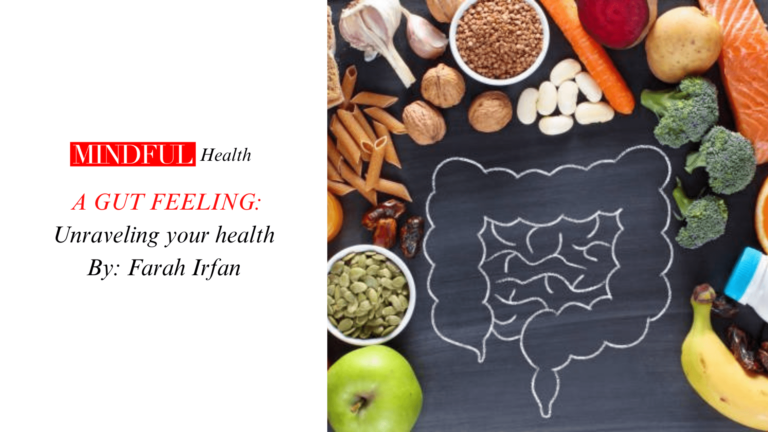Nutritional therapist and owner, Fit Like Farah, Farah Irfan, explains what gut health is and how to optimise it for overall well-being.
Gut health refers to the balance and well-being of the myriad tiny organisms (microbes) in your digestive system, primarily in your intestines. Your gut microbiome serves as the cornerstone of your overall health. Optimal gut health is achieved with a healthy balance between good (beneficial) and bad (potentially harmful) bacteria and yeast. In fact, around 80% of your immune system is housed in the gut, along with the majority of your body’s serotonin. This means that if your gut isn’t healthy, your immune system and hormone functions can be compromised, leading to illness. This imbalance can also trigger autoimmune disorders, such as Hashimoto’s Disease.
Here’s what constitutes good gut health in simple terms:
1. Balance: A mix of good and bad microbes, with good ones dominating.
2. Diversity: Many different types of microbes, like a diverse community.
3. Abundance: Enough microbes to keep your gut thriving.
4. Function: Microbes doing their jobs, like helping with digestion and immunity.
5. Intestinal lining: A strong, leak-free barrier between gut and blood stream.
6. Inflammation: Low levels of inflammation, which can harm gut health.
7. Regular bowel movements: stool elimination without issues like diarrhea or constipation.
8. Comfort: Feeling good in your gut, without bloating, pain, or discomfort.
Think of your gut like a garden. Good gut health means a lush, diverse garden with many flowers (good microbes) blooming, a strong fence (intestinal lining), and no weeds (bad microbes) taking over.
Improving gut health involves a combination of dietary changes, lifestyle modifications, and managing stress. Here are some tips:
1. Eat a balanced diet: Focus on whole, unprocessed foods like fruits, vegetables, whole grains, lean proteins, healthy fats, nuts and seeds.
2. Include gut-friendly foods: Add foods rich in fiber (legumes, fruits, veggies), probiotics (yogurt, kefir, kimchi, sauerkraut), and prebiotics (garlic ginger, bananas, onions).
3. Stay hydrated: Drink plenty of water to help fiber move through your digestive system.
4. Exercise regularly: Physical activity improves gut motility and overall health.
5. Manage stress: Practice stress-reducing techniques like meditation, yoga, or deep breathing exercises.
6. Get enough sleep: Aim for 7-8 hours of sleep per night to help regulate gut function.
7. Supplement only when required: Sometimes we over-supplement without considering how harmful the cover and binding agents of our supplements are.
8. Limit processed foods: Reduce or avoid foods high in sugar, salt, and unhealthy fats.
9. Avoid antibiotics unless necessary: Antibiotics can disrupt the gut microbiome.
10. Get Sunshine: We need vitamin D from the sun to activate the processes in our body.
11. Consult a healthcare professional: If you have persistent gut issues or concerns, seek personalized guidance. Please do not try to fix it by yourself.
Remember, everyone’s gut health is unique, so be patient and work with your body to find what works best for you! Stay Healthy….Stay Regular!



